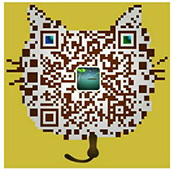 课程大纲:
课程大纲:使用Azure IoT开发物联网解决方案培训
Week 1: IoT and the Azure IoT Hub
In this module, students will get an introduction IoT basics, and to Microsoft’s support for
IoT (hardware and software). Students will also learn about some of the ways that
IoT is being implemented by large and small businesses around the world,
and will examine the basic architecture of an IoT solution. In the labs,
students will learn how to configure and implement their own
IoT solutions using the Azure IoT Hub. After completing this module, students will be able to:
• Create an IoT Hub service
• Use their IoT Hub to register and track the devices
• Configure messaging to relay data to and from Azure.
Week 2: Data Analysis
In this module, students will learn about Azure analytics services. Being able to run analytics on data
in real time and generate alerts is a key component of most IoT solutions. Azure Stream Analytics makes
this process straightforward and easy. During this module, students will learn how
to implement Azure Stream Analytics and will compare its functionality with other Azure services,
such as Event Hub and Azure Functions. After completing this module, students will be able to:
• Establish the connection between stream analytics and the IoT Hub
• Initiate live monitoring of incoming data
• Configure data threshold values for alerts.
Week 3: Data Storage and Visualization
In this module, students will learn about the many storage options
that are available on Azure. The primary focus will be directed to the low-cost cold storage options and
in particular, how to store data to DocumentDB.
Students will also be introduced to backend analysis and presentation using Power BI.
After completing this module, students will be able to:
• Persist their data to a DocumentDB database
• Query their data
• Implement basic Power BI features
Week 4: Device Management
In this module, students will learn about the importance of device management (remote updates
and how to complete remote diagnostics). Being able to remotely update a device,
or reset it when it’s in a faulting state, is an important part of maintaining
an IoT solution, and in this module students will get some important tips on how to diagnose and fix
a device by remotely executing commands. After completing this module, students will be able to:
• Remotely diagnose and update their devices





